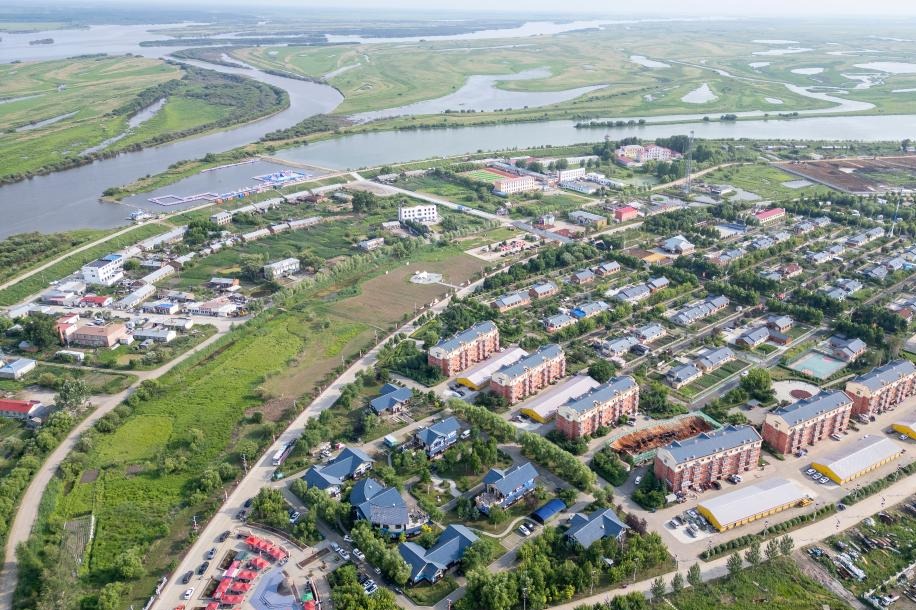To Cali, with a backlog
China's UN biodiversity COP presidency will come to an end soon, but the Kunming-Montreal Framework is a legacy that should be protected


Delegates from over 190 countries will be gathering in Cali, Colombia, from Oct 21 to Nov 1, for the 16th Conference of the Parties to the United Nations Convention on Biological Diversity (CBD COP16). It is also the time when China will officially hand over its presidency to Colombia.
China's presidency was prolonged because of the COVID-19 pandemic. The journey of COP15 started in Kunming in 2021 and continued in Montreal, Canada, in 2022, with a historic agreement on key targets that will guide the global efforts to protect nature in the current decade, known as the Kunming-Montreal Global Biodiversity Framework.
The 2030 targets include conserving at least 30 percent of land, waters and seas globally, recognizing the rights and roles of indigenous peoples and local communities, to minimize the impacts of climate change on biodiversity and build resilience, and to reduce harmful incentives and mobilize financial resources for biodiversity.
The year 2030 is not too far away, so countries must be committed to taking immediate actions to achieve these targets. And in Cali, for the first time since this landmark agreement was reached, countries will meet to focus on their implementation. But, it is not hard to conclude that the implementation is not going to be as promising as we had hoped.
Global targets need to be broken down and taken up at the national level in order to be implemented, and the main instruments are the National Biodiversity Strategy and Action Plans (NBSAPs). In Montreal, countries agreed to update their NBSAPs by COP16, to better align with the new 2030 targets. But so far, just over 10 percent of the 196 parties to the CBD have kept their promise to submit updated plans. Most of these countries are in Western Europe and Asia, including China. A further 60 or so countries have simply updated their national targets, but without providing any details on how they intend to achieve them. With COP16 just around the corner, a large number of countries will miss the deadline.
And the quality of those plans that have already been updated is not without concern, according to an online tracker developed by the World Wild Fund in collaboration with Greenpeace. While most of the updated plans respond to the targets set under the Kunming-Montreal framework, few adequately address the most relevant local issues that drive biodiversity loss in their respective countries. Yet ambitious plans need both. As a result, only China, Japan and France scored high on ambition. In addition, only a few countries provided actionable steps and monitoring mechanisms to track progress.
It's worth noting that countries that have not submitted updated plans have different reasons. Some simply have not made biodiversity a priority, while some others are constrained by their capacity and resources. And even when a national plan is ready, it is only the beginning of the implementation, which requires financial resources.
All countries have committed to mobilizing more resources through domestic channels, but some countries need additional international support. Globally, biodiversity hotspots — the places that are rich in biodiversity but facing imminent threats — are mostly located in countries that are less developed and less equipped financially. At COP15, a commitment was made to increase total biodiversity-related international financial resources to developing countries to at least $20 billion per year by 2025, and to at least $30 billion per year by 2030. The funding should come from developed countries, and from countries that voluntarily assume the responsibilities of developed countries.
The OECD's latest report showed that finance for biodiversity protection globally had grown to $15.4 billion by 2022. But there is still a gap, and the downside of the increase is that most of it comes from loans rather than grants. An alarming trend is that dedicated funding for biodiversity specific projects, such as protected areas and restoration, has declined since 2015.
As COP15 president, China has made its efforts to narrow the gap. At the opening of COP15, President Xi Jinping pledged 1.5 billion yuan ($212.25 million) to protect biodiversity. In May, this was turned into the Kunming Biodiversity Fund that is co-chaired by the United Nations Environment Programme. According to China's Foreign Ministry, the fund is set up to support biodiversity conservation in developing countries, and work primarily through providing grants.
Nevertheless, the lion's share of the responsibility lies on developed countries. The $20 billion is the most imminent goal for the Kunming-Montreal Global Biodiversity Framework, and finance is always one of the most contentious issues at negotiating tables. In Cali, progress toward the $20 billion target will be scrutinized, and eyes will be on rich countries to see if there are more champions to accelerate the delivery of their commitments.
Aside from increasing financial resources, it is equally important to shift existing harmful subsidies that cause biodiversity loss. Those harmful subsidies exist widely, in agriculture, fishing and energy sectors. Countries have committed to reducing harmful investments including subsidies by at least $500 billion per year by 2030, but the NBSAPs have submitted to giving little confidence that this has been allocated with the necessary political determination across governments.
When delegates arrive in Cali, these implementation challenges mentioned above will be front and center. In the last decade, not a single target from the 2010 Aichi Global Biodiversity Framework was met. As biodiversity and climate crises worsen, our world simply cannot afford a repeat of that failure.
China's CBD COP presidency will end in Cali, but the Kunming-Montreal framework is a legacy that China should protect. As its implementation has only just begun, there is still much to be done, and a continued need for leadership from China.
The author is global policy advisor in Greenpeace East Asia. The author contributed this article to China Watch, a think tank powered by China Daily. The views don't necessarily reflect those of China Daily.
Contact the editor at editor@chinawatch.cn.


































